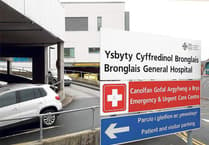Tourism leaders have urged Wales not to follow Scotland’s lead by replicating a “failed” licensing scheme that has “harmed” the industry and created a “thriving black market”.
Last week, the Welsh Government unveiled a tourism bill in the Senedd which, if passed, will create a mandatory licensing scheme for short-term Airbnb-style rentals.
But industry representatives gave a damning account of a similar policy in Scotland, describing the experience since its introduction in 2022 as a “real horror story”.
Marc Crothall, chief executive of the Scottish Tourism Alliance, warned the policy has created “far greater harm than good” as he gave evidence in the Senedd.
He told the economy committee: “When policy is developed without a clear objective and without reliable data, it fails, and Scotland... is that case study.”
Fiona Campbell, chief executive of the Association of Scotland's Self-Caterers, pointed to two successful judicial reviews brought against Edinburgh council.
She warned the entire Scottish scheme is “in breach” of the Human Rights Act.
She said: “I would just urge the Welsh Government and policy makers to really take heed of these warnings… don't do it as Scotland has done it – or you may well end up in court.”
Ms Campbell argued that rather than solving housing problems, the policy was “harming the wrong people and regulating the wrong thing”.
Calling for extreme caution, she criticised the Welsh Government's projected £75 annual fee for the new licence, labelling it “entirely uncredible” based on Scotland's experience.
Giving evidence during an earlier session, finance secretary Mark Drakeford defended the tourism bill as “good for the industry”. The former first minister argued the bill would create a level-playing field and reassure visitors.
Prof Drakeford said Wales had learned from Scotland’s “locally based scheme” – which he said had caused confusion – by opting for a simpler, national model.


-(1).jpeg?width=209&height=140&crop=209:145,smart&quality=75)


Comments
This article has no comments yet. Be the first to leave a comment.